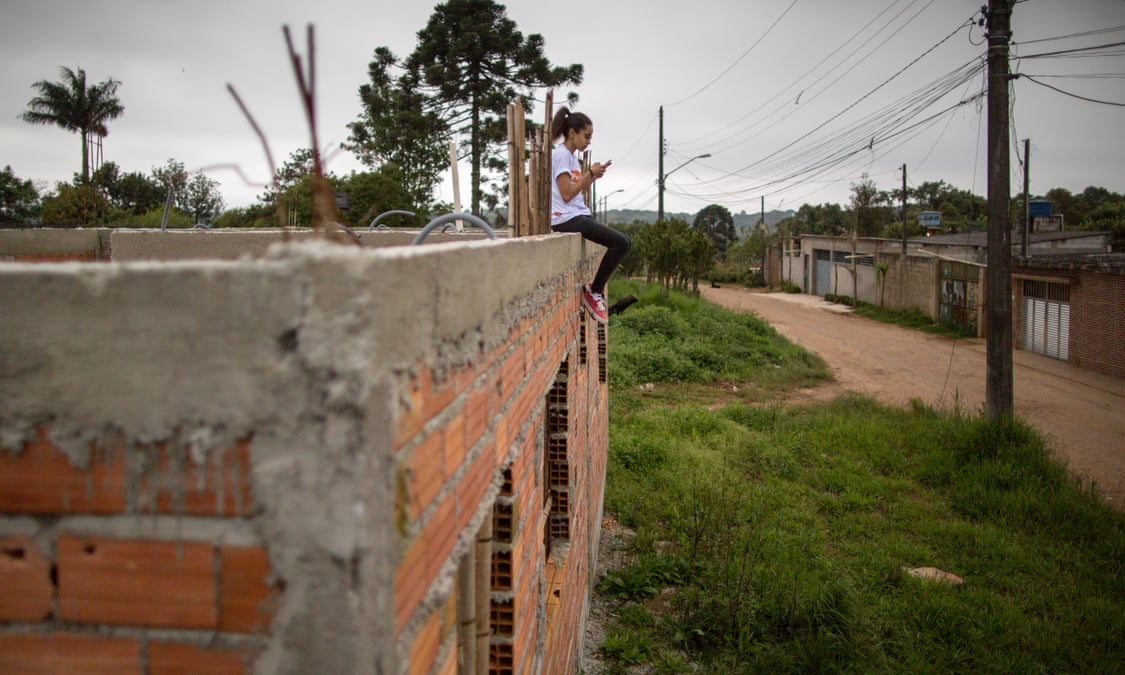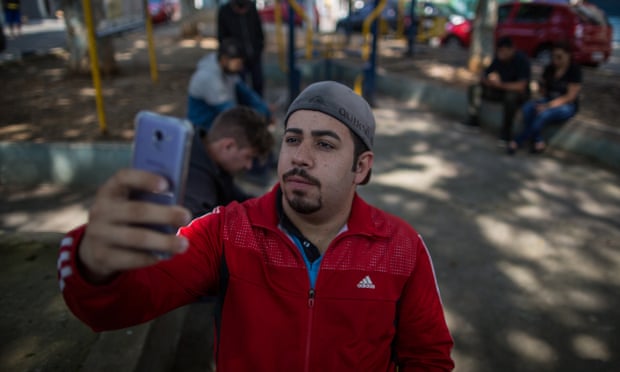- UID
- 20
- Online time
- Hours
- Posts
- Reg time
- 24-8-2017
- Last login
- 1-1-1970
|
More than 50% of people around the world now use the internet but in Brazil’s largest city, the digital haves and have-nots sometimes live just metres apart.

Luana Nunes’s home internet connection is very weak and unstable – for anything urgent, she has to roam her neighbourhood trying to pick up a signal in higher places. Photograph: Flavio Forner for the Guardian
▼ For some people, getting into university is all about the grades. For Luana Nunes, it was about finding a reliable internet connection.
Nunes nearly missed out altogether on registering for the all-important high school leaving exam because she did not have web access at home, and had to go to the nearest internet cafe, 40 minutes away. “When I got there, I realised that I’d left a document at home,” she says.I feel disconnected from the world, literally
Luana Nunes
Nunes lives in Barragem, on the southern outskirts of São Paulo, where large areas are internet deserts. It was not until 2018 that she finally got the option of having the internet at home.
Now 23 and a journalism student, Nunes is connected at home thanks to a local company that provides radio-based internet access. She has a modem that can just about pick up the nearby 3G signal, though it is very weak.
“It’s really unstable when it’s raining,” she says. “When it’s something urgent, I walk around the neighbourhood, trying to pick up a signal in higher places. I feel disconnected from the world, literally. It’s a game of patience and persistence.”

Residents of Heliópolis, São Paulo’s largest favela, seek free wifi signal. Photograph: Flavio Forner for the Guardian
Domestic internet access has been growing steadily in Brazil. According to the ICT household survey, 61% of households were connected in 2017, compared to 54% the previous year. But gross inequality exists in virtual Brazil too, and São Paulo, one of the country’s biggest and most developed cities, is also one of the least connected, ranking 99th in a list of 100 connected Brazilian cities.
“There is a myth that people without access live in north-eastern Brazil, but the largest number of families with no fixed connection is in São Paulo,” says Rafael Zanatta, leader of the digital rights programme at the Brazilian Institute for Consumer Protection.
The main reason is cost. A broadband connection of a speed of up to 10Mbps still costs around 100 reais per month, more than 10% of the minimum wage in Brazil.
In São Paulo the distribution of internet connection mirrors the city’s inequality. (▪ ▪ ▪)
► Please, read the full article here: Source |
|